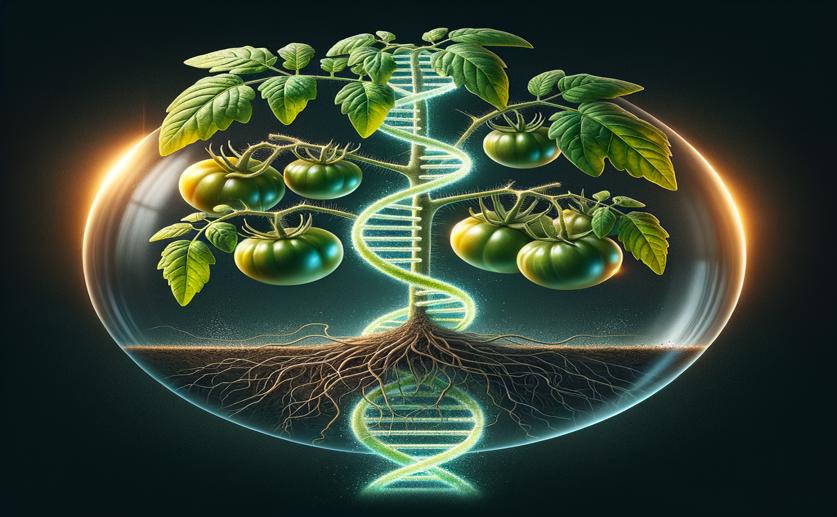
Understanding How Tomato Plants Respond to Stress by Studying Key Genes
Jenn Hoskins
23rd May, 2024

Image Source: Natural Science News, 2024
Key Findings
- Researchers at Sunchon National University studied E2F/DP family proteins in tomato plants to understand their role in cell cycle regulation and stress responses
- They identified eight E2F/DP genes in tomatoes and analyzed their expression patterns across different organs and under various environmental stresses
- Specific E2F/DP genes were found to be involved in responses to abiotic stresses like drought and salinity, suggesting potential for developing stress-tolerant tomato crops
References
Main Study
1) Genome-wide characterization and expression profiling of E2F/DP gene family members in response to abiotic stress in tomato (Solanum lycopersicum L.)
Published 22nd May, 2024
https://doi.org/10.1186/s12870-024-05107-3
Related Studies
2) Rice WRKY13 regulates cross talk between abiotic and biotic stress signaling pathways by selective binding to different cis-elements.
3) WRKY76 is a rice transcriptional repressor playing opposite roles in blast disease resistance and cold stress tolerance.
4) Recent advances in engineering plant tolerance to abiotic stress: achievements and limitations.
Journal: Current opinion in biotechnology, Issue: Vol 16, Issue 2, Apr 2005
5) The interaction of plant biotic and abiotic stresses: from genes to the field.



 23rd May, 2024 | Greg Howard
23rd May, 2024 | Greg Howard